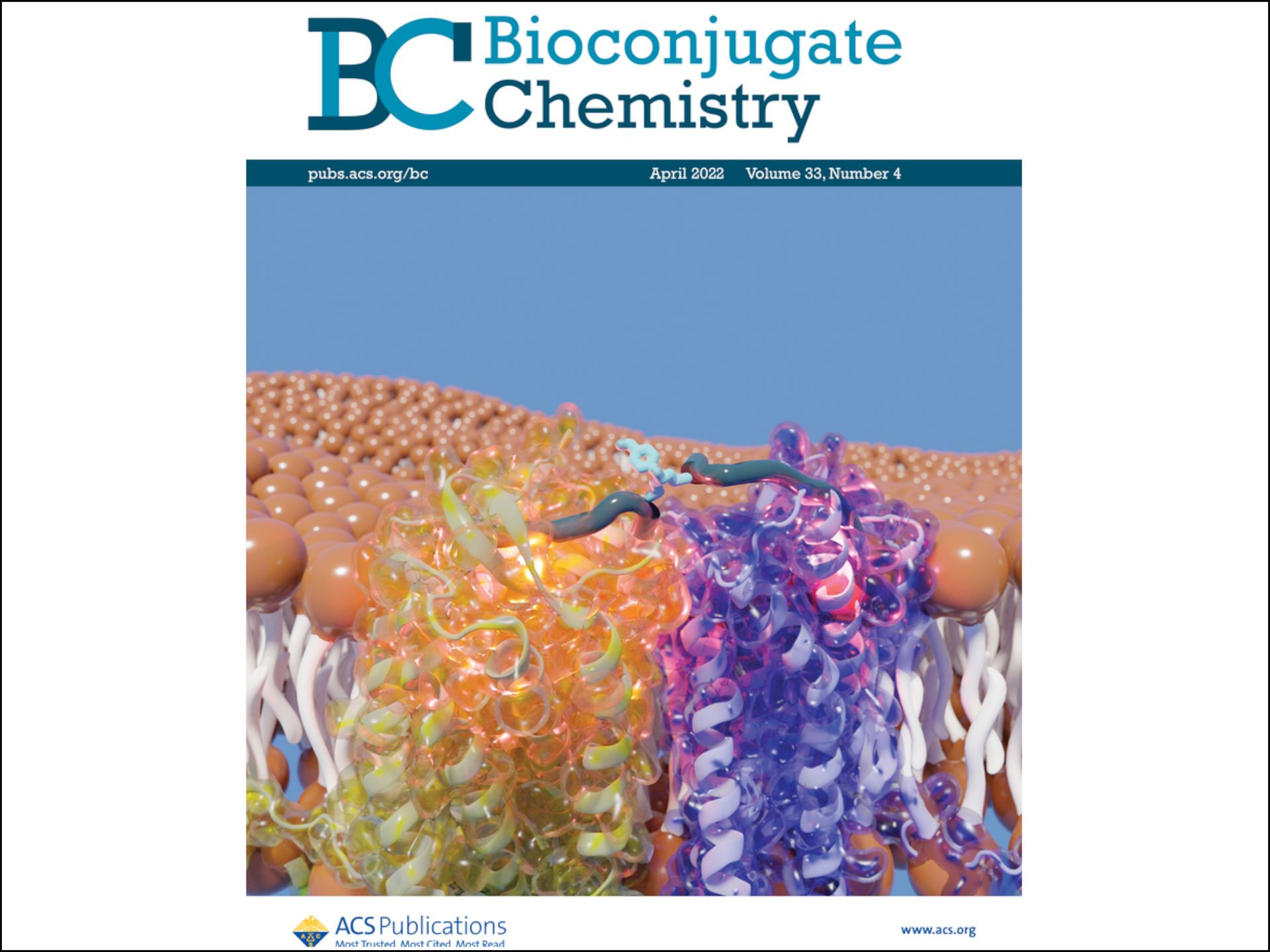On the cover: Improving potency and plasma stability of EPI-X4 derivatives
We are happy to announce that our newest cooperative publication “Dimerization of the Peptide CXCR4-Antagonist on Macromolecular and Supramolecular Protraction Arms Affords Increased Potency and Enhanced Plasma Stability” made it on the cover page of Bioconjugate Chemistry.
EPI-X4 derivatives inhibit the migration of cancer cells and inflammation in mouse models but are often rapidly degraded in blood plasma. In a collaborative study of the groups of Jan Münch (A06), Elsa Sanchez-Garcia (A06), and Alexander Zelikin (Aarhus University) optimized variants of the endogenous peptide CXCR4 antagonist EPI-X4 were designed and analyzed, which not only show high stability against enzymatic degradation in blood plasma but also increased potency due to dimerization. For this, macromolecular peptide conjugates were synthesized and compared with their albumin-binding counterparts as well as monovalent conjugates, divalent telechelic conjugates, or Y-shaped peptide dimers. All constructs were tested for competition with CXCR4 antibody–receptor engagement, suppression of receptor activation, and inhibition of the CXCR4-tropic HIV-1 infection and functional stability in human plasma. The scientists found that both, polymer conjugation and albumin targeting, increase compound stability in plasma. In addition, Y-shaped dimeric conjugates were more potent than the parent peptide, most likely due to interaction with CXCR4 homodimers on the cell surface. Thus, these new EPI-X4 derivatives seem to represent favorable candidates for further translational studies within the CRC 1279.
Cover: https://pubs.acs.org/toc/bcches/33/4
Harms et al. https://pubmed.ncbi.nlm.nih.gov/35293739/


